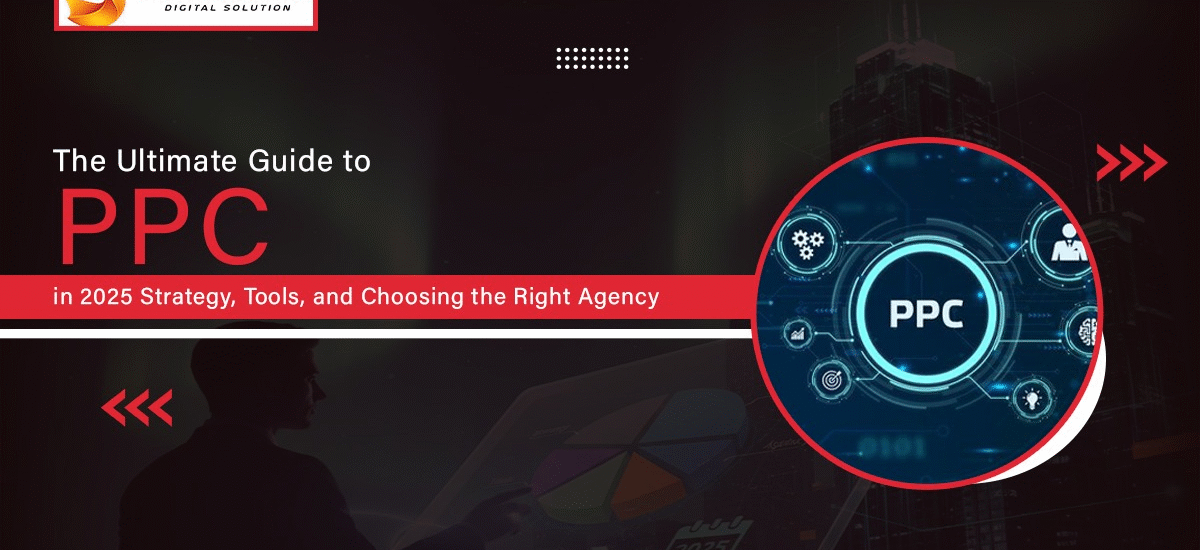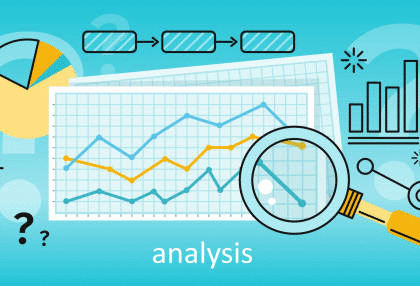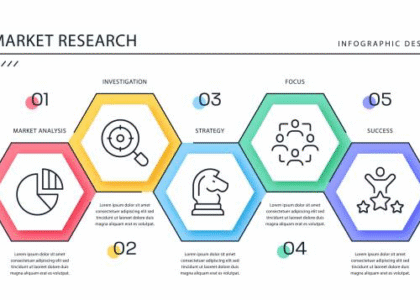Digital marketing is continually changing in 2025, and Pay-Per-Click (PPC) is still one of the fastest and easiest ways to get more visitors to visit your site. SEO is vital for long-term organic growth, but PPC is great for getting quick results and putting businesses in front of the people they want to reach. This complete guide to PPC has all the information you need in 2025. It’ll discuss the basics and economic models, strategy, tools, optimisation, and essential trends. It’ll also talk about how to choose the best specialist or agency. This tool can help you make good PPC decisions, whether you’re a marketer, a business owner, or a marketing manager.
1. What does PPC stand for?
With pay-per-click (PPC) advertising, advertisers pay a fee every time someone clicks on one of their ads. You’re paying for visits to your site instead of acquiring them naturally. Search engines like Google and Bing show search advertisements (PPC adverts). Display Ads are shown on websites by the Google Display Network. Shopping ads show up in shopping tabs and search results.
Moreover, Facebook, LinkedIn, Instagram, and TikTok are some social networking sites that feature them (video ads). Google Ads, Microsoft Ads, Meta Ads (for Facebook and Instagram), LinkedIn Ads, and TikTok Ads are some of the most popular PPC systems. This plan features precise goals, timely feedback on its performance, and adjustable budgets. It makes it perfect for short-term gains and particular marketing campaigns.
2. PPC vs SEO: Which One to Choose?
PPC and SEO are essential parts of a complete digital marketing approach, but they work differently.
When to Use PPC
- When you want to launch a new product • When you want to test a landing page or offer
- When you want to run a campaign that is only available for a short time or during a specified season
- When you need to see results right immediately
When SEO is a good idea:
- Getting more visitors over time
- Building confidence in your brand
- Saving money over time
- Gaining authority
SEO is more stable, while PPC is speedier. They get along excellently.
3. Guide to PPC Economics: How It Works
PPC isn’t just about putting up ads. You should also know how the economy works so you don’t waste money.
Standard Pricing Models:
- CPC (Cost Per Click): You pay when someone clicks on your ad.
- CPM (Cost Per Thousand Impressions): You pay for every thousand times someone sees your ad.
- CPA (Cost Per Acquisition): You pay when someone makes a purchase. Ad
Rank and Quality Score:
Google utilises Ad Rank to determine where to put ads. It looks at the bid amount, the quality score. It also focuses on the ad’s relevance, and the experience on the landing page. Higher Quality scores can help you save money and receive more attention. So,
- Make a daily budget and change it based on how well you stick to it.
- Invest more money in phrases that show a lot of interest.
- Remember the customer lifetime value (CLTV).

4. Building a Successful PPC Strategy
You can’t just make ads and expect PPC to work. You need a plan that works for your goals and your audience.
A Step-by-Step Plan
1. Make SMART Goals: Do you want leads, clicks, or sales?
2. Research keywords: Use tools like SEMrush, Ahrefs, or Google Keyword Planner to uncover words that people want to use.
3. Divide your audience into groups: Focus on specific groups of people based on their age, gender, and interests.
4. Write advertising that gets people’s attention by using headlines that are easy to read, focusing on the benefits, and strong calls to action (CTAs).
5. Choose the proper platform: Pick an area where your audience likes to hang out.
- Google for searches based on what people want to do;
- Meta for targeting people on social media;
- LinkedIn for business-to-business;
- TikTok for Gen Z audiences.
B2B vs. B2C:
- B2B: Focus on generating leads, publishing long-form content, and making connections.
- B2C: Use ads that make people feel they need to buy immediately, visuals, and sales.
Always do A/B tests. The ad that LP performs well now might not work well tomorrow.
5. PPC Optimization: Making Every Click Count
The first step is to start a PPC campaign. You need to optimise to get the most out of your investment continuously.
Key Areas for Improvement:
1. Landing Pages
- Make sure the ad copy and the messaging are the same.
- Use designs that load quickly and look good on mobile devices.
- Make your call to action (CTA) clear and fun.
- Make forms short and to the point.
2. Keyword Management
- Use negative keywords to keep people who aren’t interested from visiting your site.
- Improve your match kinds (broad, phrase, exact).
- Remove keywords that aren’t working correctly or aren’t bringing in business.
3. Ad Scheduling
- Show your advertising when the people you want to reach will most likely view it.
- Use dayparting to avoid times when conversions are low.
4. Geotargeting
- Don’t include places that have a history.
- Don’t pay attention to low conversion rates.
5. Device Targeting
- Make ads perform better on phones, laptops, and tablets.
- Change your bids depending on how effectively your devices operate.
6. Conversion Tracking
- Keep track of conversions with Google Analytics 4 (GA4) and other tools that work with your platform.
- Keep track of purchases, phone calls, form submissions, etc.
Improvement tip: Use numbers to help you decide. Don’t trust your instinct; let the numbers tell you what to do.

6. PPC Tools and Software to Supercharge Campaigns
The right tools can help you work faster and better.
Keyword & Competitor Research:
- Google Keyword Planner,
- SEMrush,
- Ahrefs,
- Ubersuggest, and
- SpyFu for keyword and competitor research.
Campaign management:
- Google Ads Editor: enables you to work offline and make many changes simultaneously.
- Optmyzr: helps you make your adverts better and run them automatically
- Adzooma: Smart tips for PPC
Bid & Budget Automation:
- Marin Software
- Skai (Kenshoo)
- Revealbot, which utilises AI to adjust bids
Analytics & Reporting:
- Google Analytics 4 (GA4) and Looker Studio for generating custom dashboards are two tools for analytics and reporting.
- Supermetrics.
Landing Page Builders:
- Unbounce,
- Instapage, and
- Leadpages are all tools for making landing pages. Even just buying a few of these tools can make your investment far more profitable.
7. PPC Marketing Services & Agencies
Many businesses don’t have the time or skills to run PPC ads successfully. A good PPC company can help you get better results in less time.
Guide to PPC and PPC Agency Offers:
It may help you with things like:
- Planning your strategy
- Finding the right keywords
- Making and testing ads
- Setting up conversion tracking
- Managing bids
- Sending you monthly statistics on how well your ads are doing.
Types of PPC Services
Some PPC services are Google Ads Management, Microsoft Ads (Bing), Meta Ads (Facebook and Instagram). It also includes LinkedIn Ads, Shopping Campaigns and re-targeting or remarketing.
Choosing a B2B PPC Agency
When looking for a B2B PPC agency, ensure they have dealt with B2B clients and have good recommendations from those who have used them before.
- Ask them if they use CRM solutions like HubSpot or Salesforce.
- Read over old case studies.
Benefits to Work with a PPC Agency:
- Access to qualified specialists
- Faster results
- Scalable execution
- Tools and insights from the industry
- More cost-effective.
When you pick an agency, ask them how they charge (a percentage of ad spending or a flat fee) and how often they report on outcomes.
8. Hiring a PPC Specialist vs Doing It Yourself
If you’re not sure whether to do your own PPC or hire a pro, think about the following:
PPC by yourself:
- Good for small firms that don’t have a lot of money
- You have complete control and transparency
- The learning curve can be steep
- It can take a long time if you don’t know what you’re doing
Hiring a PPC Specialist:
- Great for organizations that are growing or campaigns that are advanced
- Experts have years of experience with the platform
- Better optimization and faster ROI
- Can set up detailed tracking and reporting
What to Look for in a PPC Professional:
- Certifications in Google Ads and Analytics
- Experience in a variety of fields or businesses
- The ability to produce strong ad copy
- A thorough understanding of bidding processes and automation
It makes sense to engage an expert if your firm depends on traffic that you buy.

9. Google PPC Marketing: A Closer Look
Pay-per-click advertising is still most prevalent on Google. It is how you get the most out of it: There are many kinds of Google Ads campaigns:
- Search Campaigns: Ads that show up on Google SERPs when consumers look for specific words
- Display Campaigns: Ads that appear on partner sites
- Shopping Campaigns: Ads that have pictures and prices
- Video Campaigns: Ads that appear on YouTube
- Performance Max Campaigns: Ads that utilize AI to show up on all Google properties
New Features in 2025:
- Smart bidding that gets better over time (AI learns from how people act)
- Targeting first-party data (without cookies)
- Works with voice search campaigns
- Ad types for YouTube Shorts
- To get the most out of your time, always use sitelinks, callouts, and pricing extensions as ad extensions.
Optimization Tips:
- Check your Ad Rank and Quality Score regularly.
- Try out Responsive Search Ads to see if they give you more options and reach.
10. Guide to PPC on Managing and Scaling PPC Campaigns
Once your PPC campaign starts functioning, the next step is to grow it bigger.
When to Scale:
- A consistent rate of conversion
- A solid return on ad spend (ROAS)
- A constant cost per click (CPC)
- Leads or sales of high quality.
How to Grow Your PPC Campaign:
1. Expand Keyword List
- Use your search term reports to find terms that make people buy.
- Check out the different forms of related terms.
- Use long-tail keywords to get to more people.
2. Increase Budget Gradually
- Don’t double your budget immediately.
- Spend 10 to 20 per cent extra per week.
- After each change, see how things are doing.
3. Enter new markets
- Look for new places to live.
- Create campaigns that are specific to each language.
- Change the time zones for folks all around the world.
4. Launch Retargeting Campaigns
- Use remarketing lists for search ads (RLSA).
- Show adverts over and over again.
- Show people who came but didn’t buy deals.
5. Use Diversify Platforms
- Use Microsoft Ads, Meta Ads, LinkedIn, and TikTok.
- Some platforms may cost less to get people to buy.
6. Improve Ad Creatives
- Use different headlines and descriptions for your adverts.
- Update the photos and feeds for the products.
- To acquire a greater CTR, use dynamic keyword insertion.
Monitor These Key Metrics:
- CTR (Click-Through Rate)
- CPC (Cost per Click)
- CPA (Cost per Acquisition)
- ROAS (Return on Ad Spend)
- Impression Share
- Conversion Rate.
Scaling isn’t only about spending more money; it’s also about spending it more effectively.
11. The Future of PPC: Trends to Watch in 2025
PPC is changing quite quickly. You need to remain on top of new trends to stay ahead.
- Automation & AI
Platforms like Google and Meta increasingly use machine intelligence for smart bidding, testing ad creativity, and reaching the right people. Marketers should spend less time doing things by hand and more time coming up with plans. So, PPC is almost a must.
- First-Party Data
Brands needs to be collected and used because third-party cookies are going away:
- Email address lists
- Information from your CRM
- What people do when they get to your website.
Use the information individuals have agreed to give you to manage your business.
- Search by voice and picture
More and more individuals are utilising voice and pictures to search:
- Make ads function better for voice searches, like “Where can I buy…?”
- For visual campaigns, use structured data and product photos.
- Campaigns on all channels.
People who buy products chat to each other on different websites. Use:
- Remarketing on several platforms
- Unified monitoring systems
- Consistent messaging on Google, Meta, TikTok, and other sites
- Privacy Regulations
Ad networks are tightening the restrictions for using data:
- Get authorisation and keep track of data correctly
- Follow the privacy laws in your area (GDPR, CCPA, etc.)
Following the regulations keeps your campaigns going and makes people trust you.
Final words
PPC is still one of the best tools for digital marketing if you know how to use it. Businesses may obtain great results from PPC if they learn how it works. So, choose the right tools, set clear goals, and regularly make small campaign changes. If you run your campaigns, hire an expert, or work with a full-service agency, staying current and being open to change is the most important thing. Clicks and impressions won’t be enough to make PPC function in 2025. It’s about using data to create advertising that matters and works. So, follow the right guide to PPC.
FAQs
1. What does PPC stand for in digital marketing?
Pay-per-click (PPC) means advertisers pay a fee every time someone clicks on their ad online. Using sites like Google Ads, Meta Ads, and LinkedIn can help you get more traffic, leads, and sales.
2. Is PPC better than SEO?
Both are helpful. PPC brings you traffic and visibility, but SEO gives you long-term, enduring results. You would use both in a balanced way in a perfect world.
3. How much does PPC cost each month?
Costs vary a lot based on the industry, how much competition there is, and the goals. Small businesses pay $500 to $3,000 monthly, while larger companies pay $10,000 or more.
4. What does a PPC agency do?
A PPC agency does everything from developing ads to improving them, doing keyword research, setting up conversion tracking, and reporting on how well they work. They help you get more out of the money you spend on adverts.
5. Can I make my own PPC ads?
Yes, many platforms provide tools that are easy for beginners to use. But you could lose money if you don’t know what you’re doing. You might engage a professional
National or an agency, if you want to grow.





